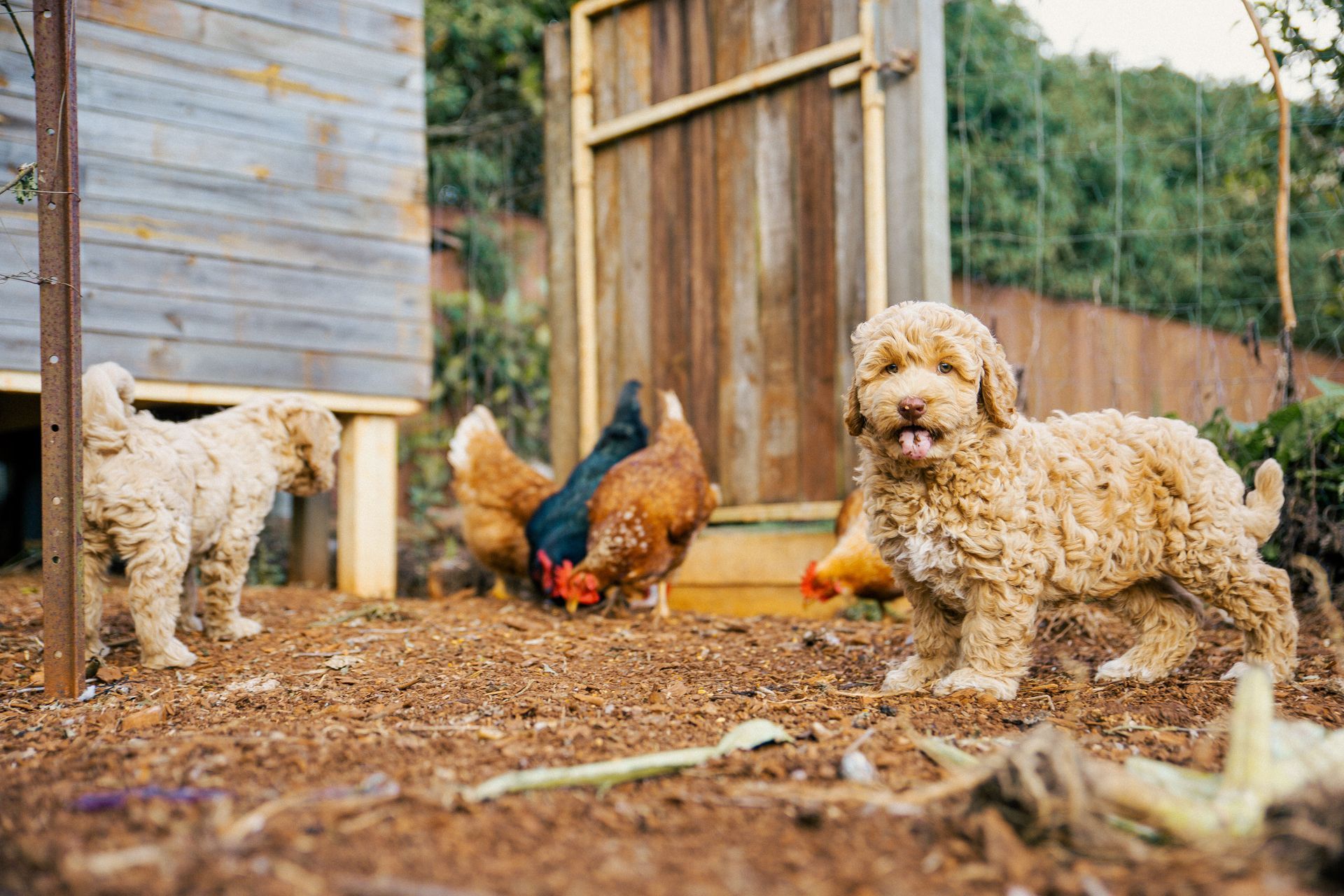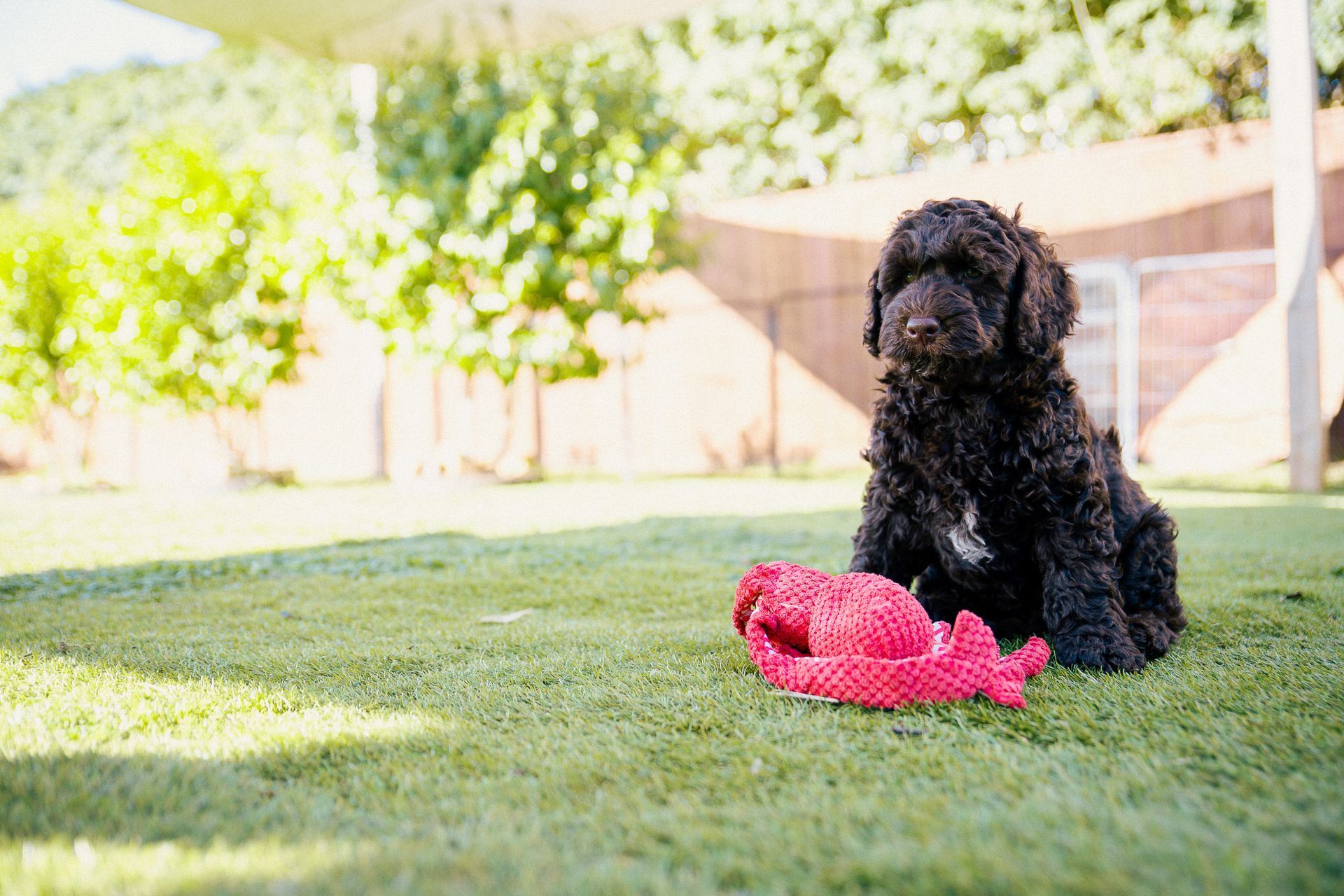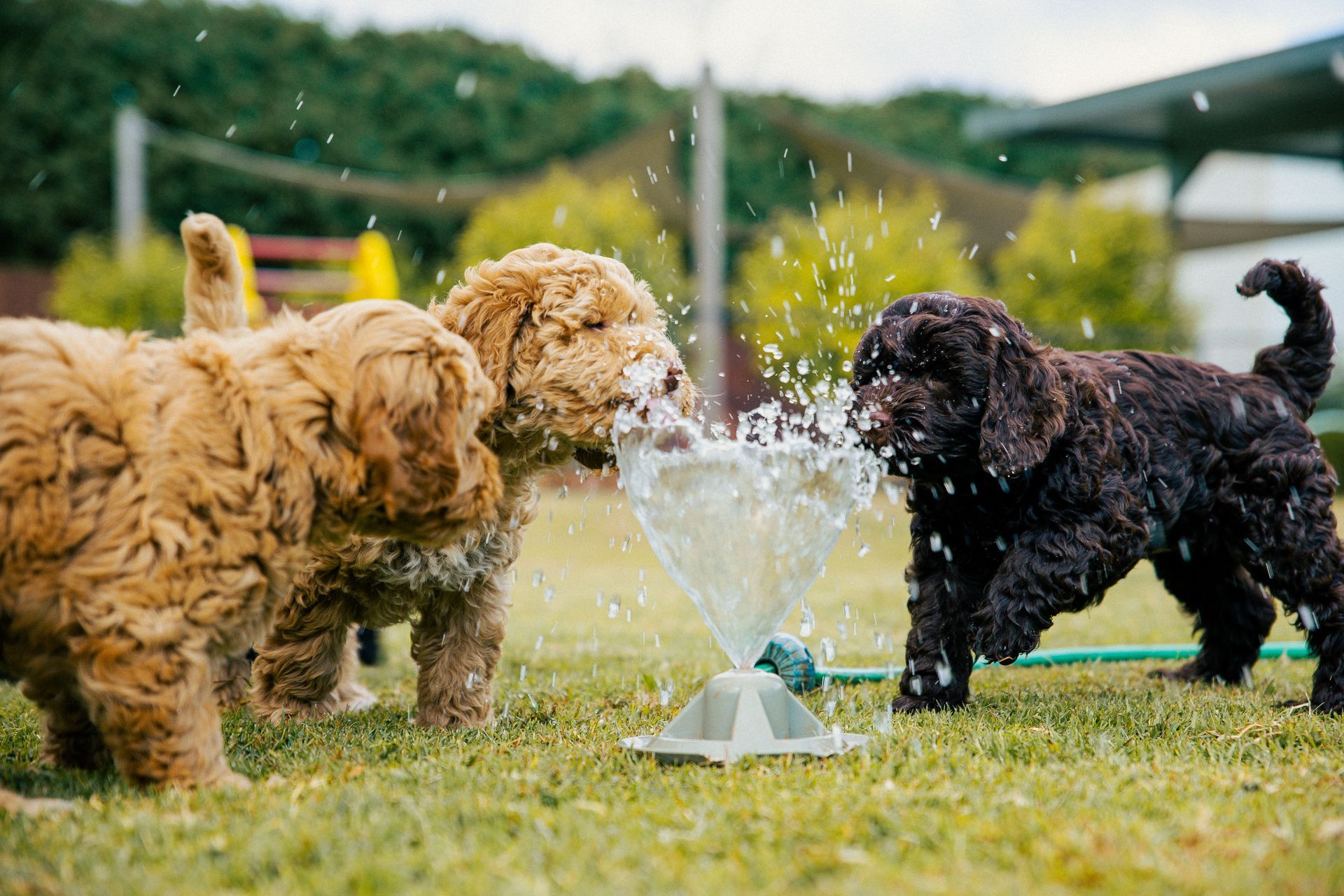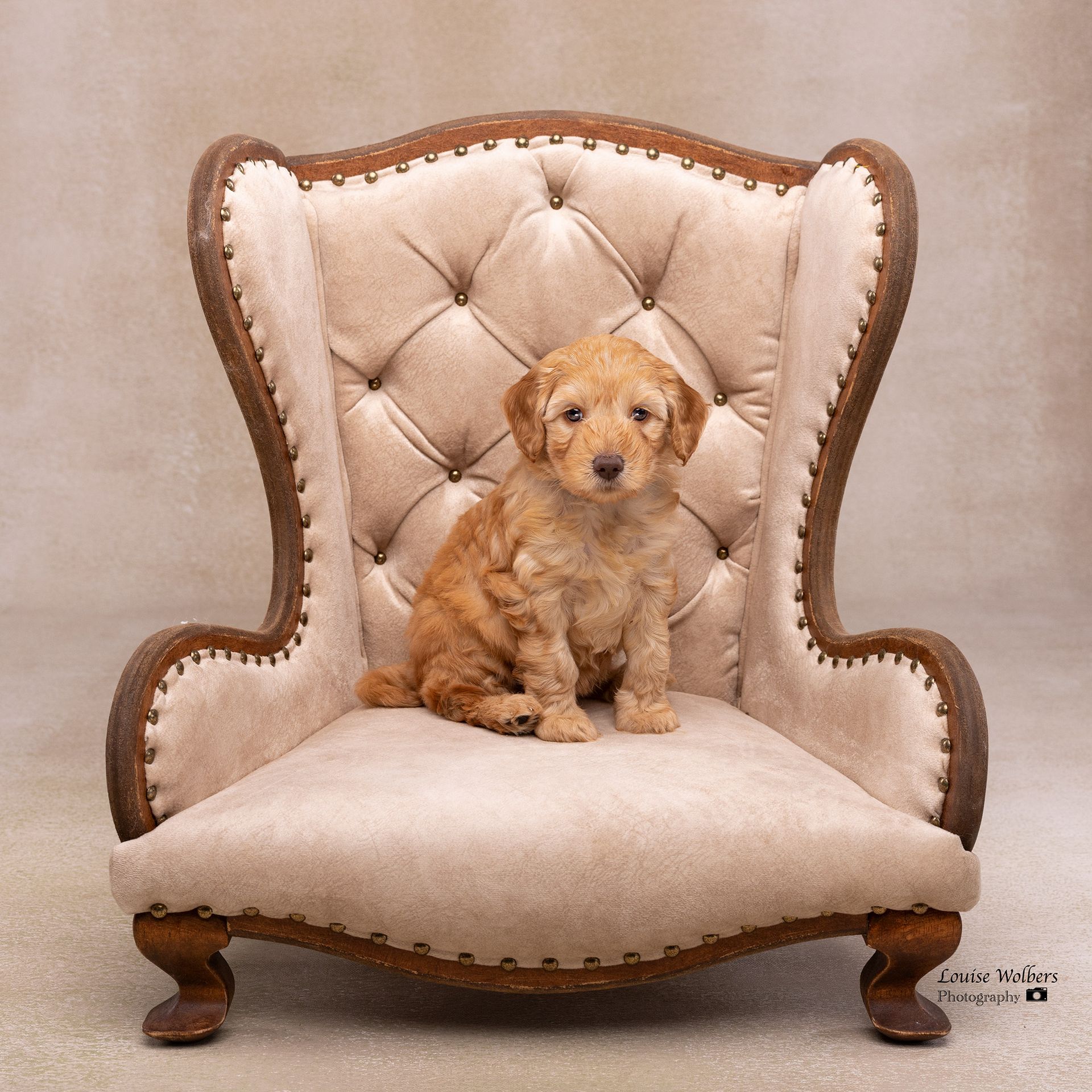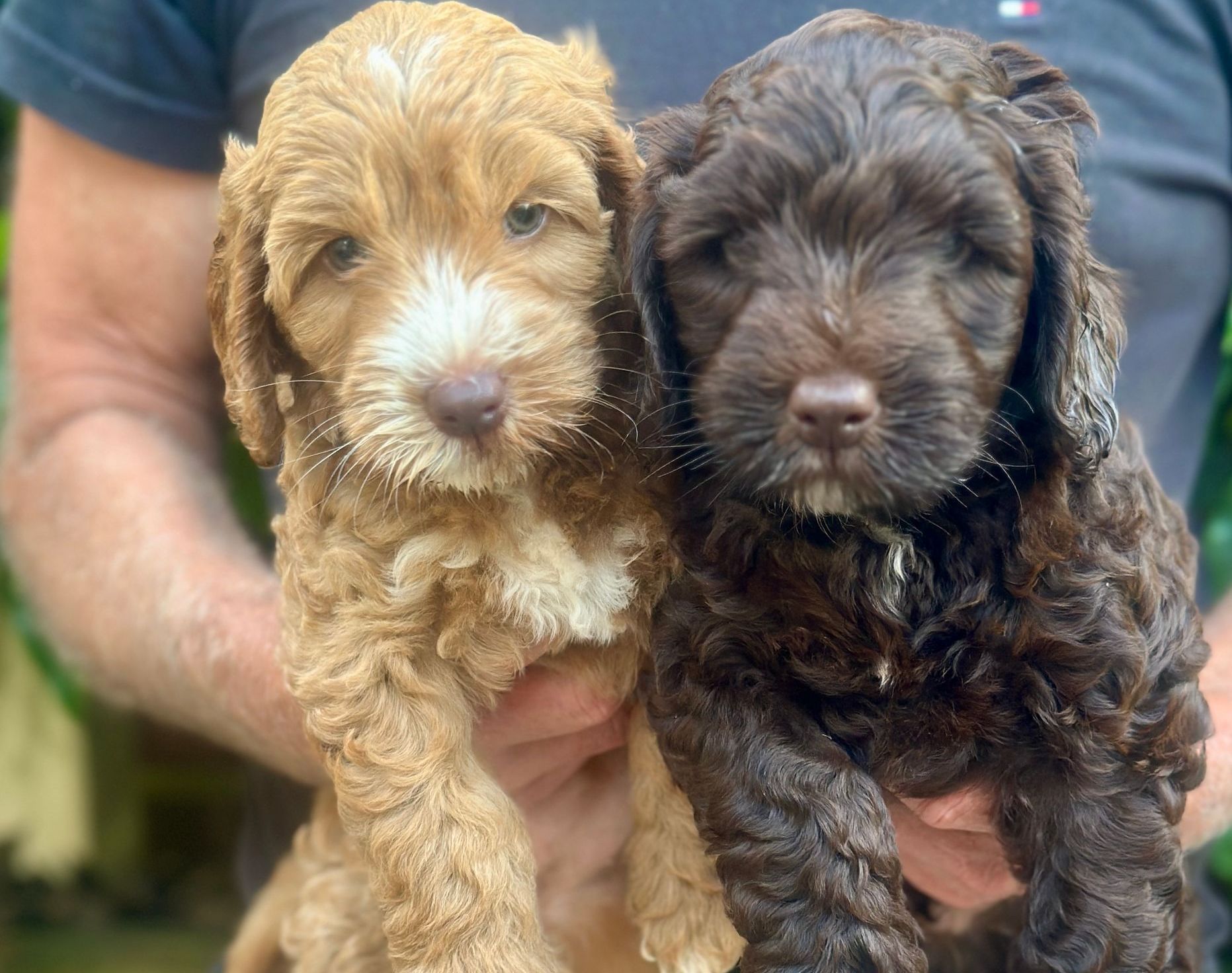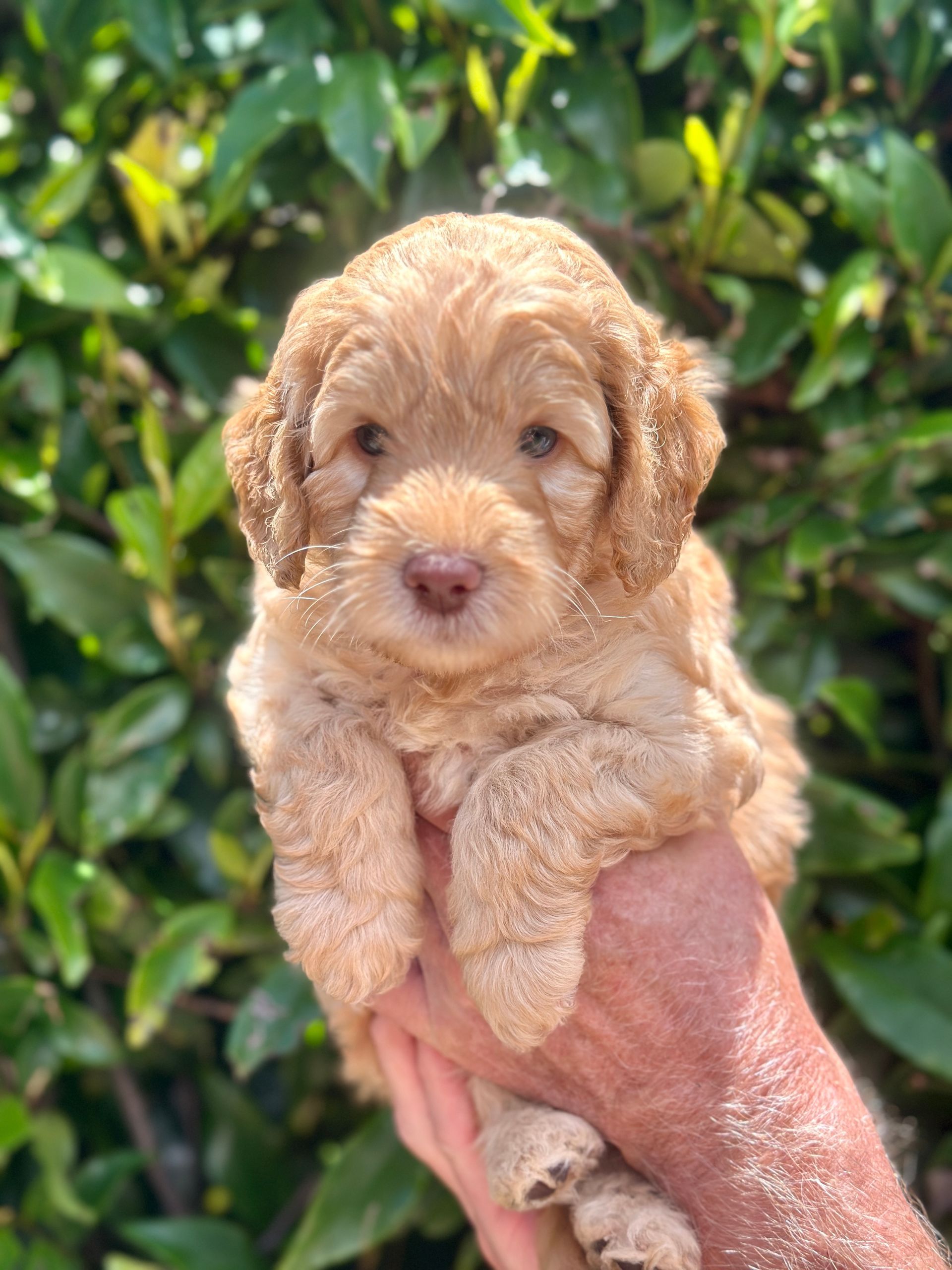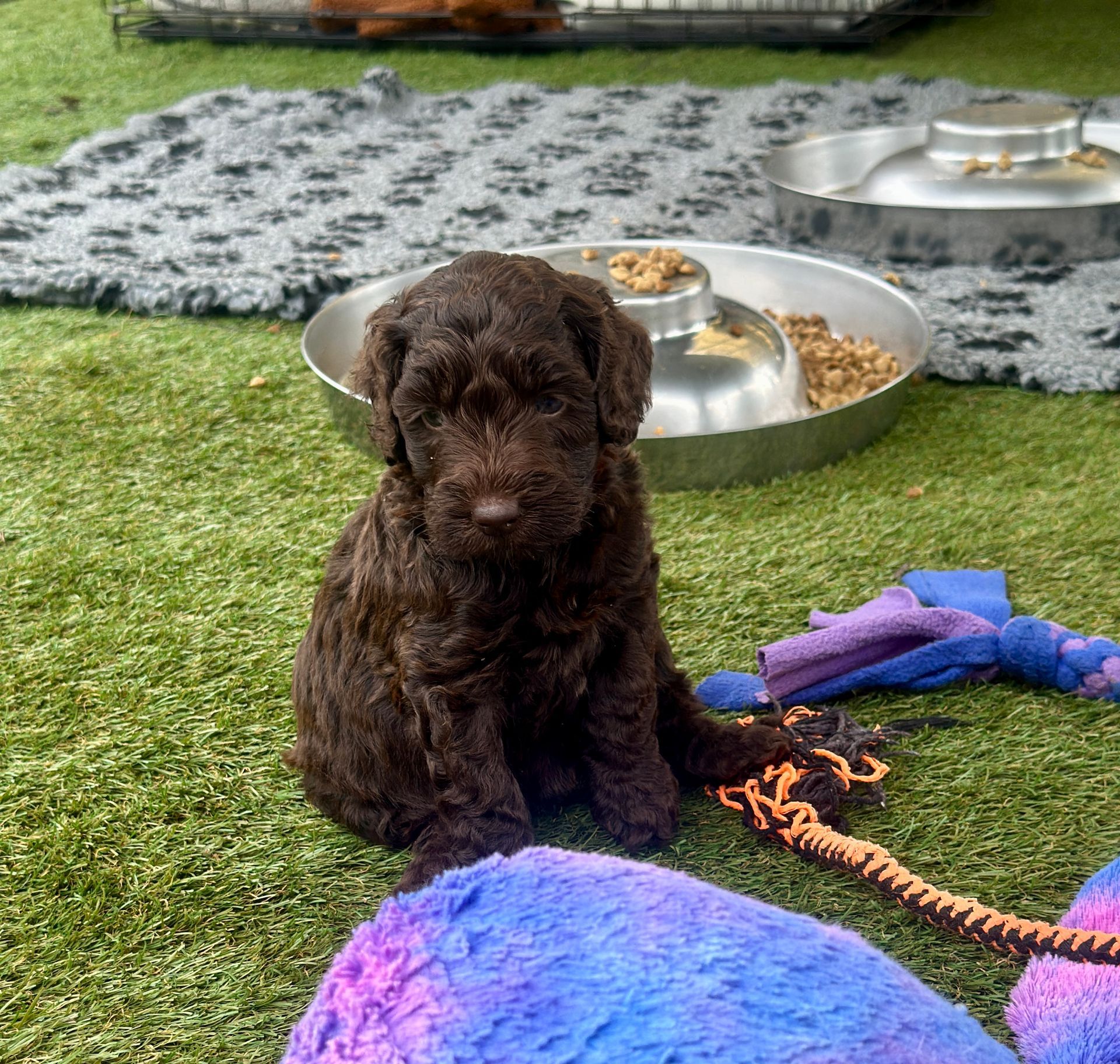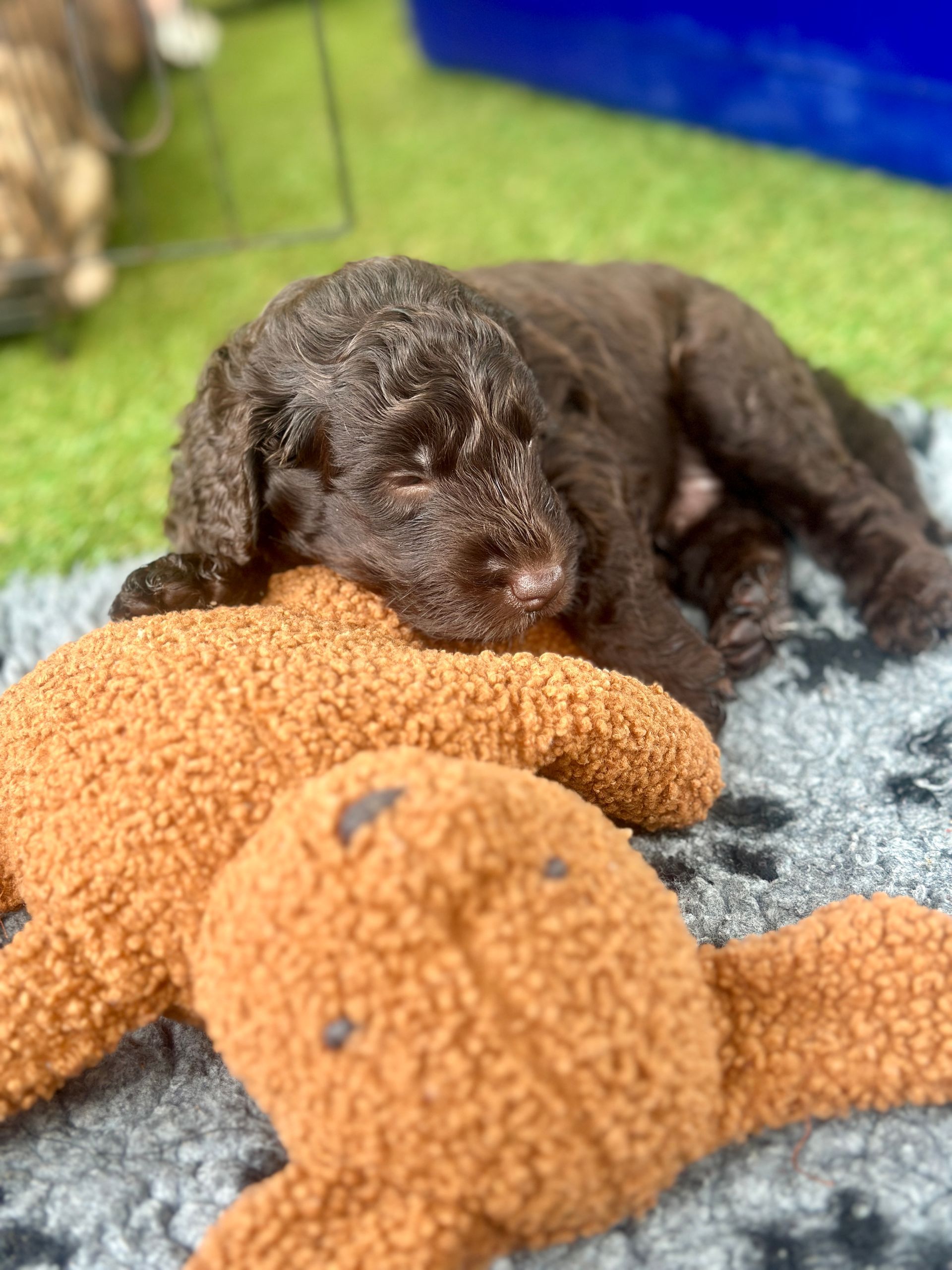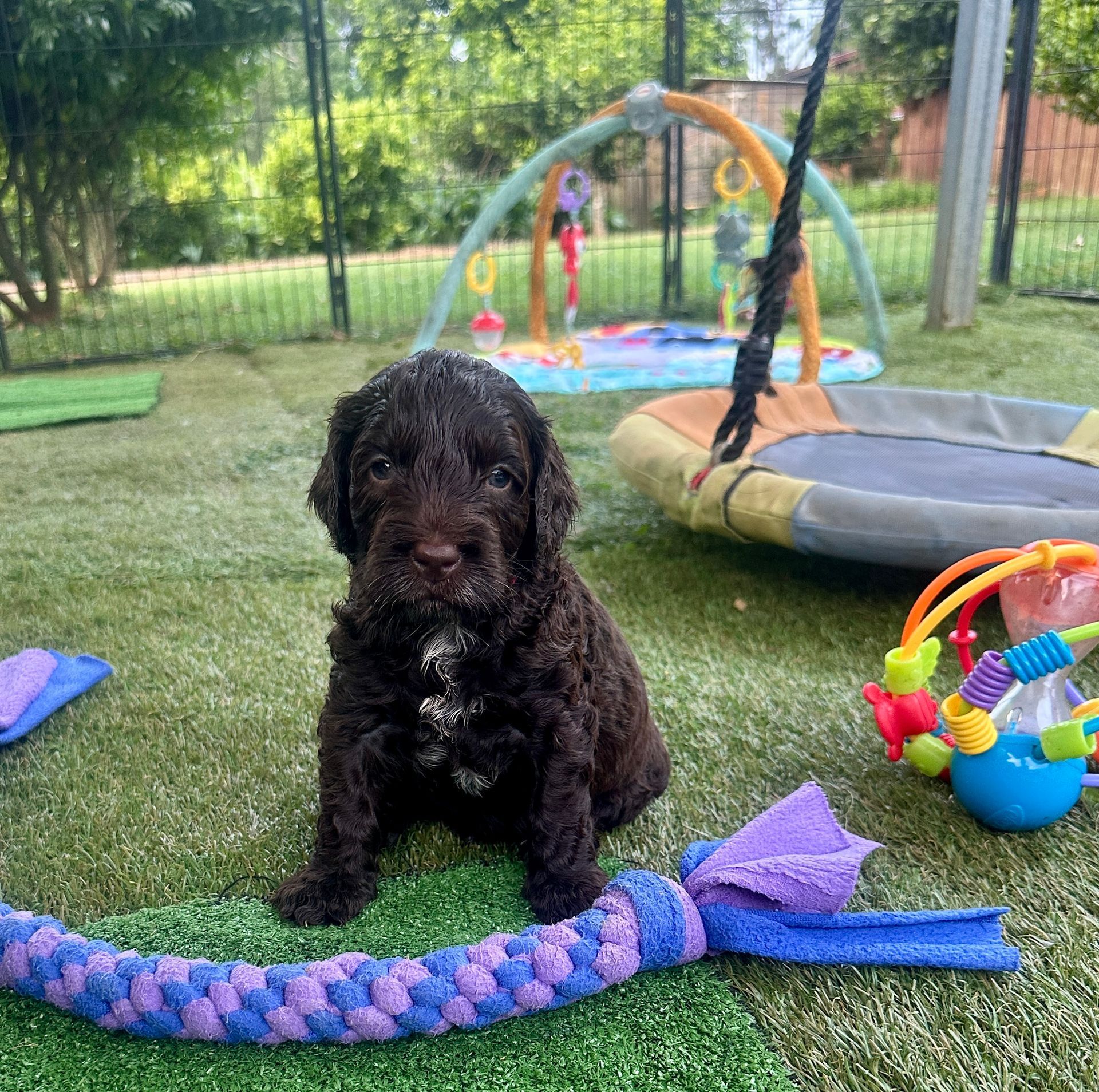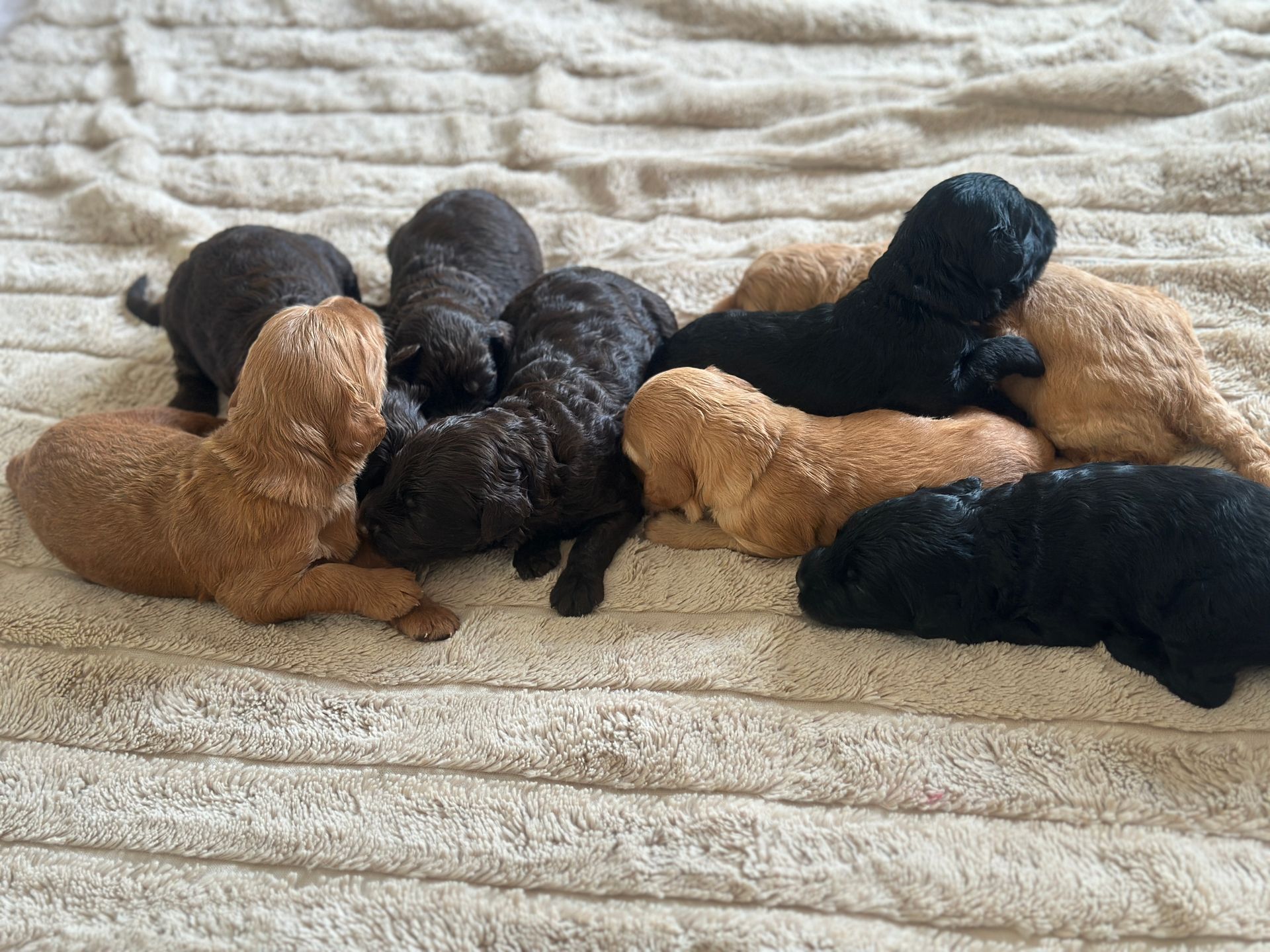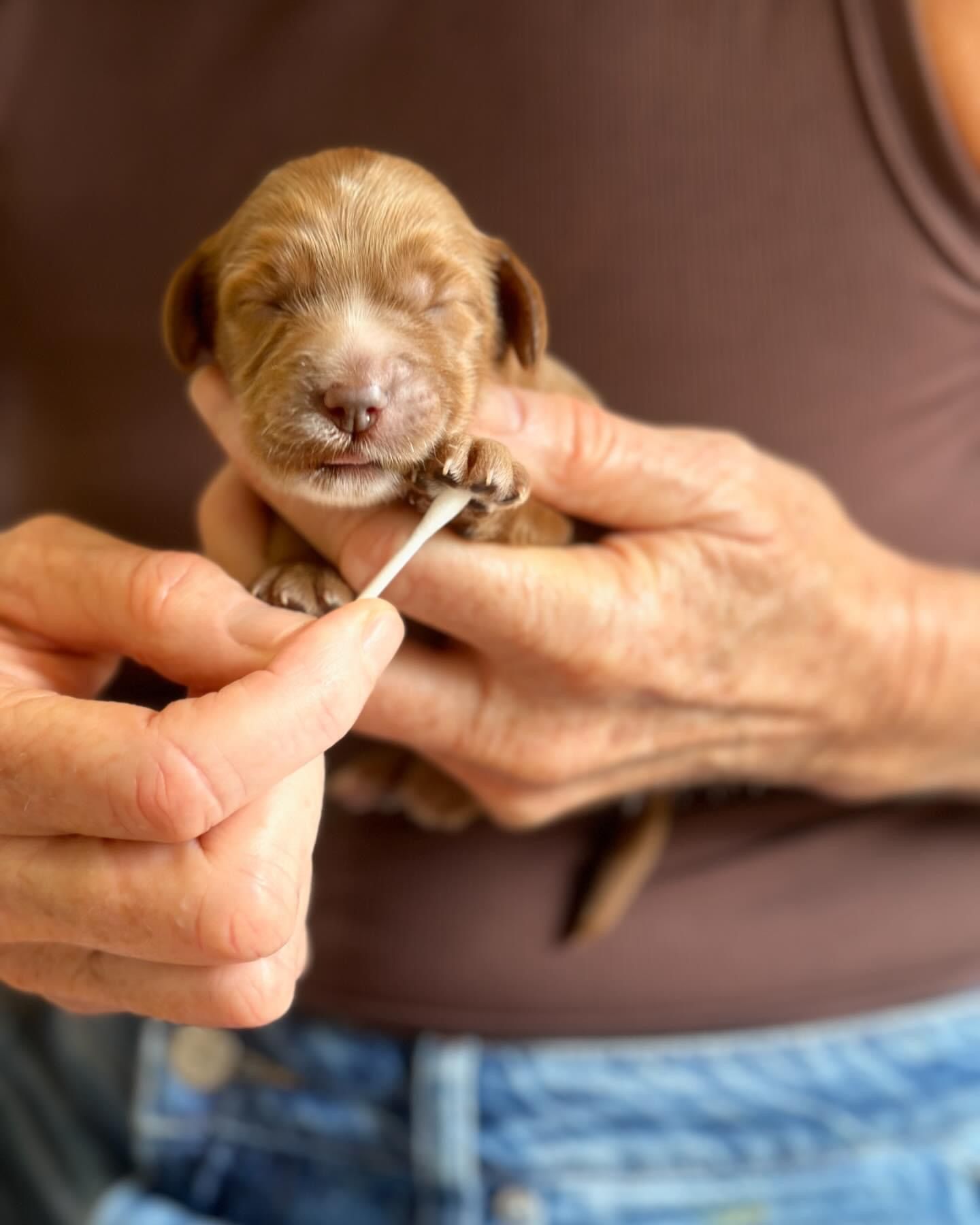Labradoodle
News & Stories
Your First Day at Home With a New Puppy: Tips for Day One
The day you bring your new puppy home is the day you’ve been waiting for. It’s your first day as long-term companions, and you want to begin bonding with your pup immediately. Start off right by staying home, so you can make your puppy feel secure and enjoy every minute of this experience.
Here are some tips to make sure the first day is the best it can be for your puppy, for you, and for your family.
Introducing your Puppy to a New Home
- Limit your puppy’s access. Too many new places, smells, and people at once may confuse them. Instead, let them explore a designated area where you are, too. Then introduce them to the rest of the house, one room at a time.
- Choose a potty spot. Start by taking them to the outside area where you want them to eliminate. When they relieve themselves, use a command that you’ll stick to, like “go potty,” and reward them with a special treat and praise.
- Introduce the puppy to their new family. If possible, do this one person at a time. Give your dog a chance to meet each of you quietly. Supervise young children. Discourage them from picking up the puppy. Let them hold them in their laps with your help.
- Minimize stress and excitement. Don’t invite friends and neighbors over to meet the dog yet. That will be important very soon, but should not start on the first day.
- Introduce other family pets. Puppies are still developing their communication skills and don’t understand the rules set in place by adult dogs. As long as an adult dog’s behavior is appropriate when correcting a puppy, it’s okay if they growl a little. If the elder dog becomes agitated, separate or redirect the puppy.
- Don’t interact with dogs outside your home. Because your puppy probably hasn’t gotten all of their shots, they shouldn’t interact with strange dogs or even walk where other dogs do.
- Start enforcing rules. The puppy needs to learn the house rules from the very beginning. Praise good behavior. Set your rules ahead of time and stick to them. For example, where do you want the puppy to sleep? Is the puppy allowed on the furniture? Can the puppy have food scraps from the table?
- Make a veterinary appointment. Your vet should give your puppy a checkup in the next few days.
Start a Routine and Stick to It
Structure will help your new canine family member feel secure and understand what’s expected of them. Routine makes it easier for everyone, humans included. Create a schedule and stick to it. Keep in mind:
- Mealtime: Young puppies eat three times a day. Put your puppy on a regular feeding schedule. What goes in on a regular schedule will come out on a regular schedule.
- Potty breaks: Every time your puppy eats, drinks, wakes up, plays, sniffs around the room, provide them with a potty break. Most young puppies have to eliminate at least every 45 minutes when awake. Pick the puppy up and carry them to the designated potty area. Never punish them for housetraining “mistakes.” When they eliminate outside, reward them immediately.
- Playtime: Your puppy needs exercise and interaction with you. A word of caution—sustained, strenuous exercise (like long runs or jumping) is not good for puppies. But playing with toys and with you, mental stimulation with puzzles, and running in the yard are great activities. A tired puppy is a good puppy.
- Dreamland: Young puppies sleep a lot. In fact, some will sleep 16 to 18 hours a day. Plan on several nap times during the day. You may need to put a crate in a quiet part of the house so they won’t be disturbed. At night, set a puppy bedtime and help them get used to the routine.
Surviving the First Night
Some puppies sleep through the night right from the start. Others may cry for a few nights. And some may not be able to hold their pee and will need a middle of the night trip outside, but this usually ends by age 4-5 months.
- For many puppies, evening is the “witching hour.” If you anticipate it by initiating play, your dog may use up some energy and settle down. An evening stroll gives them exercise and a chance to take a potty break. Be sure they go to the bathroom right before bed.
- Put their crate in your bedroom. Your pup will feel more secure if they have you nearby. Bring home a blanket or stuffed toy that smells like your pup’s mother, and keep that in their crate.
- A set bedtime makes adjustment and house training easier for everyone. It doesn’t matter if it’s 8 p.m. or midnight, as long as it becomes a routine. Take your pet to their crate and help them settle down for the night – giving them a small treat when they go in willingly.
- If your puppy is not yet able to make it through the night, when they whine, quietly carry them out for a quick, boring potty break. Then put them back in the crate.
- If the pup cries, do not put them in your bed unless that is where you want them to sleep. You can put the crate right next to your bed and put your hand inside to reassure them that you’re there. A crate is like a den, a place where a puppy won’t eliminate.
Building Strong Bonds
With lots of affectionate contact with the family, consistent rules and routine, and rewards for good behavior, your puppy will quickly learn their place in this new “pack.” Most importantly, you will establish a bond that will endure throughout their life.
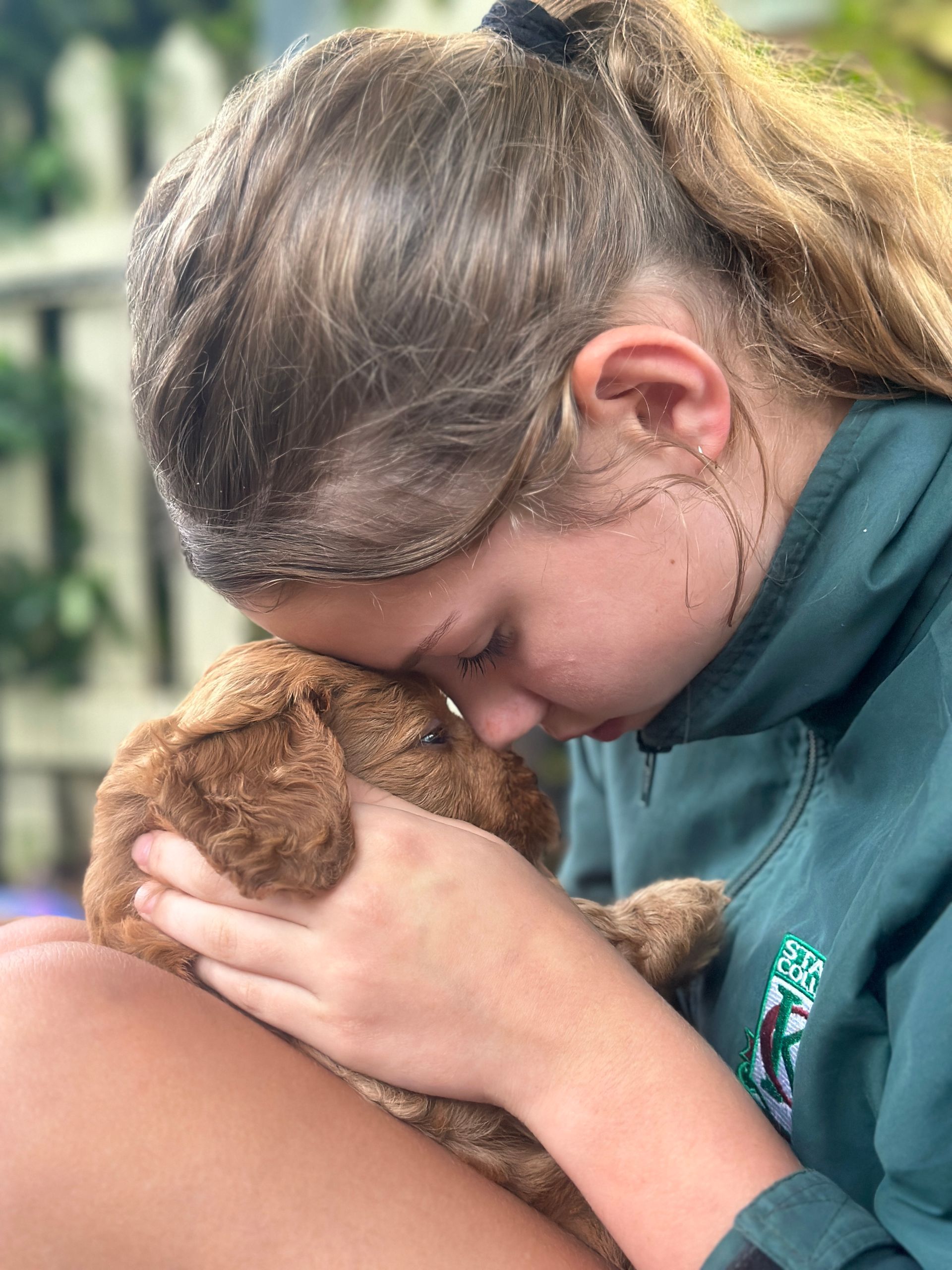
Labradoodles
Registered Queensland Dog Breeder
Breeder Identification Number BIN0000802477684
© All rights reserved - Design by Your Local Agency
